BETA MET XL 100MG TABLET
MRP ₹83
(Inclusive of all Taxes)
₹12.4 Cashback (15%)
Provide Delivery Location
Online payment accepted
 Prescription drug
Prescription drugWhats That
Composition :
Manufacturer/Marketer :
Consume Type :
Expires on or after :
Return Policy :
About BETA MET XL 100MG TABLET
BETA MET XL 100MG TABLET belongs to a group of medicines called beta-blockers used to treat high blood pressure (hypertension), heart-related chest pain (angina), irregular heart rhythm (arrhythmia), and to protect the heart after a heart attack (myocardial infarction). Hypertension or high blood pressure is a chronic condition in which the blood exerts an increased pressure against the arteries that may lead to various types of heart diseases. Besides this, BETA MET XL 100MG TABLET may also help in relieving symptoms of migraine-related headache and tremors (fits).
BETA MET XL 100MG TABLET contains 'Metoprolol', which helps in slowing down the heart rate, making it easier for the heart to pump blood throughout the body. This lowers the blood pressure and helps in reducing the risk of having a stroke, heart attack, or other heart or kidney problems in the future.
Based on your medical condition, your doctor will decide the dose and duration. In some cases, BETA MET XL 100MG TABLET may cause certain common side effects like dizziness, tiredness, diarrhoea, stomach pain, nausea, and headache. Most of these side effects do not require medical attention and resolve gradually over time. However, if the side effects are persistent, reach out to your doctor.
Inform your doctor if you have low blood pressure, asthma, overactive thyroid, metabolic acidosis, or severe blood circulation problems. Consult your doctor before taking BETA MET XL 100MG TABLET if you are pregnant or breastfeeding. BETA MET XL 100MG TABLET is not recommended for use in children. BETA MET XL 100MG TABLET may cause dizziness, so drive with caution. Avoid alcohol consumption while taking BETA MET XL 100MG TABLET as it might increase the blood pressure-lowering effect of BETA MET XL 100MG TABLET. Keep your doctor informed about your health condition and medications to rule out any interactions.
Uses of BETA MET XL 100MG TABLET
Directions for Use
Key Benefits
BETA MET XL 100MG TABLET belongs to a group of medicines called beta-blockers used to treat high blood pressure (hypertension), heart-related chest pain (angina), irregular heart rhythm (arrhythmia), and to protect the heart after a heart attack (myocardial infarction). Besides this, it also helps in relieving symptoms of migraine-related headaches and tremors (fits). BETA MET XL 100MG TABLET helps in slowing down the heart rate, making it easier for the heart to pump blood throughout the body. This lowers the blood pressure and helps in reducing the risk of having a stroke, heart attack, or other heart or kidney problems in the future.
Storage
- If you experience low blood pressure symptoms like dizziness, lightheadedness, or fainting while taking medication, seek immediate medical attention.
- Make lifestyle modifications and adjust your medication regimen under medical guidance to manage low blood pressure.
- As your doctor advises, regularly check your blood pressure at home. Record your readings to detect any changes and share them with your doctor.
- Fluid intake plays a vital role in managing blood pressure by maintaining blood volume, regulating blood pressure, and supporting blood vessel function. Drinking enough fluids helps prevent dehydration, maintain electrolyte balance, and regulate fluid balance.
- Take regular breaks to sit or lie down if you need to stand for long periods.
- When lying down, elevate your head with extra pillows to help improve blood flow.
- Avoid heavy exercise or strenuous activities that can worsen low blood pressure.
- Wear compression socks as your doctor advises to enhance blood flow, reduce oedema, and control blood pressure.
- If symptoms persist or worsen, or if you have concerns about your condition, seek medical attention for personalized guidance and care.
- Exercising regularly helps lower the risk of heart problems.
- Maintain a healthy diet, including vegetables and fruits.
- Rest well; get enough sleep.
- Manage stress with yoga and meditation.
- Limit alcohol and smoking.
- Rest well; get enough sleep.
- Eat a balanced diet and drink enough water.
- Manage stress with yoga and meditation.
- Limit alcohol and caffeine.
- Physical activities like walking or jogging might help boost energy and make you feel less tired.
- Inform your doctor about dizziness symptoms. They may adjust your medication regimen or prescribe additional medications to manage symptoms.
- Follow your doctor's instructions for taking medication, and take it at the same time every day to minimize dizziness.
- When standing up, do so slowly and carefully to avoid sudden dizziness.
- Avoid making sudden movements, such as turning or bending quickly, which can exacerbate dizziness.
- Drink plenty of water throughout the day to stay hydrated and help alleviate dizziness symptoms.
- If you're feeling dizzy, sit or lie down and rest until the dizziness passes.
- Track when dizziness occurs and any factors that may trigger it, and share this information with your doctor to help manage symptoms.
- Inform Your Doctor: Notify your doctor immediately about your diarrhoea symptoms. This allows them to adjust your medication or provide guidance on managing side effects.
- Stay Hydrated: Drink plenty of fluids to replace lost water and electrolytes. Choose water, clear broth, and electrolyte-rich drinks. Avoid carbonated or caffeinated beverages to effectively rehydrate your body.
- Follow a Bland Diet: Eat easy-to-digest foods to help firm up your stool and settle your stomach. Try incorporating bananas, rice, applesauce, toast, plain crackers, and boiled vegetables into your diet.
- Avoid Trigger Foods: Steer clear of foods that can worsen diarrhoea, such as spicy, fatty, or greasy foods, high-fibre foods, and dairy products (especially if you're lactose intolerant).
- Practice Good Hygiene: Maintain good hygiene to prevent the spread of infection. To stay healthy, wash your hands frequently, clean and disinfect surfaces regularly, and avoid exchanging personal belongings with others.
- Take Anti-Diarrheal Medications: If your doctor advises, anti-diarrheal medications such as loperamide might help manage diarrhoea symptoms. Always follow your doctor's directions.
- Keep track of your diarrhoea symptoms. If they don't get better or worse or are accompanied by severe stomach pain, blood, or dehydration signs (like extreme thirst or dark urine), seek medical help.
- Inform your doctor about the nausea and discuss possible alternatives to the medication or adjustments to the dosage.
- Divide your daily food intake into smaller, more frequent meals to reduce nausea.
- Opt for bland, easily digestible foods like crackers, toast, plain rice, bananas, and applesauce.
- Avoid certain foods that can trigger nausea, such as fatty, greasy, spicy, and smelly foods.
- Drink plenty of fluids, such as water, clear broth, or electrolyte-rich beverages like coconut water or sports drinks.
- Use ginger (tea, ale, or candies) to help relieve nausea.
- Get adequate rest and also avoid strenuous activities that can worsen nausea.
- Talk to your doctor about taking anti-nausea medication if your nausea is severe.
- Record when your nausea occurs, what triggers it, and what provides relief to help you identify patterns and manage your symptoms more effectively.
Drug Warnings
Do not take BETA MET XL 100MG TABLET if you are allergic to BETA MET XL 100MG TABLET or any other beta-blockers. Avoid taking BETA MET XL 100MG TABLET if you have/had heart conduction, rhythm problems, uncontrolled/severe heart failure, blocked blood vessels, blood circulation problems, untreated pheochromocytoma, metabolic acidosis, low blood pressure, or prinzmetal angina. Inform your doctor if you have asthma, COPD, diabetes, blood vessel disorder, slow heart rate, pheochromocytoma, myasthenia gravis, dry eye problems, kidney or liver impairment; if you are taking anti-depressants, other blood pressure-lowering medicines, or anti-arrhythmic agents. Consult your doctor before taking BETA MET XL 100MG TABLET if you are pregnant or breastfeeding. BETA MET XL 100MG TABLET is not recommended for children as safety and efficacy have not been established. BETA MET XL 100MG TABLET may cause dizziness, so drive with caution. Let your doctor know if you are taking other prescription/non-prescription medicines or herbal supplements.
Drug-Drug Interactions
Drug-Drug Interactions
Login/Sign Up
Taking ceritinib together with Beta Met Xl 100mg Tablet can slow your heart rate and increase the risk of an irregular heart rhythm.
How to manage the interaction:
Although there is a interaction between Beta Met Xl 100mg Tablet and Ceritinib, but they can be taken together if your doctor has prescribed them. However, consult your doctor immediately if you experience any dizziness, lightheadedness, fainting, or irregular heartbeat. Do not discontinue any medications without consulting a doctor.
Coadministration of Beta Met Xl 100mg Tablet with Verapamil may lead to increased side effects.
How to manage the interaction:
Although there may be an interaction, Beta Met Xl 100mg Tablet can be taken with Verapamil if prescribed by the doctor. Consult a prescriber if you experience fatigue, headache, fainting, swelling of the extremities, weight gain, shortness of breath, chest pain, increased or decreased heartbeat, or irregular heartbeat. Do not discontinue any medications without a doctor's advice.
Coadministration of Aminophylline with Beta Met Xl 100mg Tablet together can make Beta Met Xl 100mg Tablet less effective and increase the effects of aminophylline.
How to manage the interaction:
Taking Aminophylline with Beta Met Xl 100mg Tablet may lead to an interaction, it can be taken only if a doctor has advised it. If you experience nausea, vomiting, sleeplessness, restlessness, irregular heartbeats, or difficulty in breathing, contact a doctor immediately. Do not discontinue any medications without consulting a doctor.
Coadministration of Acebutolol with Beta Met Xl 100mg Tablet can cause abnormal heart rhythm.
How to manage the interaction:
Taking Beta Met Xl 100mg Tablet and Acebutolol together can possibly result in an interaction, it can be taken if your doctor has advised it. However, if you experience blurry vision, confusion, dizziness, fainting, lightheadedness, nausea or vomiting, contact your doctor immediately. Do not discontinue any medications without consulting a doctor.
Co-administration of Clonidine and Beta Met Xl 100mg Tablet may lower blood pressure and slow the heart rate.
How to manage the interaction:
Although there is a possible interaction between Clonidine and Beta Met Xl 100mg Tablet, you can take these medicines together if prescribed by your doctor. However, if you experience headaches, slow heartbeat, dizziness, or feeling like you might pass out, contact your doctor. Do not stop using any medications without first talking to your doctor.
Coadministration of Beta Met Xl 100mg Tablet and Tizanidine may reduce the efficiency of Beta Met Xl 100mg Tablet.
How to manage the interaction:
Taking Beta Met Xl 100mg Tablet and Tizanidine together can possibly result in an interaction, it can be taken if your doctor has advised it. However, if you experience blurry vision, confusion, dizziness, fainting, lightheadedness, nausea or vomiting, contact your doctor immediately. do not discontinue any medications without talking to your doctor.
Using Beta Met Xl 100mg Tablet and Saquinavir can increase the risk of an irregular heart rhythm.
How to manage the interaction:
There may be a possible interaction between Beta Met Xl 100mg Tablet and Saquinavir, but they can be taken together if your doctor has prescribed them. However, consult a doctor immediately if you experience dizziness, lightheadedness, fainting, slow pulse, or irregular heartbeat. Do not discontinue any medications without consulting a doctor.
Both Beta Met Xl 100mg Tablet and Artemether may increase the blood levels and effects of Beta Met Xl 100mg Tablet activity.
How to manage the interaction:
Taking Beta Met Xl 100mg Tablet and Artemether together can possibly result in an interaction, it can be taken if your doctor has advised it. However, if you experience blurry vision, confusion, dizziness, fainting, lightheadedness, nausea or vomiting, contact a doctor immediately. Do not discontinue any medications without consulting a doctor.
Use of Beta Met Xl 100mg Tablet with Atazanavir may increase the risk of an irregular heart rhythm.
How to manage the interaction:
Although there may be an interaction between Beta Met Xl 100mg Tablet and Atazanavir, it can be taken if prescribed by the doctor. Consult the doctor if you experience dizziness, lightheadedness, fainting, or irregular heartbeat, contact your doctor immediately. Do not discontinue any medications without consulting a doctor.
Coadministration of Beta Met Xl 100mg Tablet with Diltiazem can increase the side effects.
How to manage the interaction:
Although there is a possible interaction between Beta Met Xl 100mg Tablet and Diltiazem, you can take these medicines together if prescribed by your doctor. Consult your doctor immediately if you experience fatigue, headache, fainting, swelling of the extremities, weight gain, shortness of breath, chest pain, increased or decreased heartbeat, or irregular heartbeat. Do not discontinue any medications without consulting a doctor.
Drug-Food Interactions
Drug-Food Interactions
Login/Sign Up
Diet & Lifestyle Advise
- Do regular physical activity or exercise.
- Opt for a diet rich in whole grains, fruits, vegetables, and low-fat dairy products.
- Limit intake of sodium chloride (table salt) in your daily diet.
- Quitting smoking is the best strategy to lower the risk of heart disease.
- Avoid chronic stress as it can raise your blood pressure. Try to enjoy and spend time with your loved ones to cope with stress and practice mindfulness techniques.
- Try to include heart-healthy omega-3 fatty acid-containing food drinks in your daily diet. You can also use low-fat cooking oil like olive oil, soybean oil, canola oil, and coconut oil.
Side Effects of BETA MET XL 100MG TABLET
- Dizziness
- Tiredness
- Diarrhoea
- Stomach pain
- Nausea
- Headache
Habit Forming
Therapeutic Class
All Substitutes & Brand Comparisons
RX
Out of StockBETAONE XL 100MG TABLET
Dr Reddy's Laboratories Ltd
₹37.75
(₹3.4 per unit)
54% CHEAPERRX
Out of StockACTIBLOK IPR 100MG TABLET
Biocon Ltd
₹60
(₹5.4 per unit)
27% CHEAPERRX
Cadmet-XR 100 Tablet 10's
Lividus Pharmaceuticals Pvt Ltd
₹80
(₹7.2 per unit)
3% CHEAPER
Author Details
We provide you with authentic, trustworthy and relevant information
Drug-Diseases Interactions
Drug-Diseases Interactions
Login/Sign Up
FAQs
Drug-Drug Interactions Checker List
- CIMETIDINE
- HYDRALAZINE
- CLONIDINE
- AMIODARONE
- CYCLOPROPANE
- TEMAZEPAM
- DIAZEPAM
- INDOMETHACIN
- CELECOXIB
- TERBINAFINE
- HYDROCORTISONE
- PREDNISOLONE
- LIDOCAINE
Special Advise
- Monitor your blood pressure daily and if there is too much fluctuation then immediately contact your doctor.
- If you are due to have any surgery, inform the doctor that you are taking BETA MET XL 100MG TABLET.
Disease/Condition Glossary
Hypertension: The blood exerts increased pressure on the walls of blood vessels leading to hypertension. Blood pressure is the measurement of the heart's force to pump blood to all parts of the body. Hypertension is a chronic condition in which blood pressure is too high. This condition can lead to hardened arteries (blood vessels), decreasing the blood and oxygen flow to the heart. Raised blood pressure can cause chest pain (angina) and heart attack (when blood supply to the heart is blocked). Additionally, high blood pressure also causes brain damage (stroke) and kidney failure. High blood pressure can be diagnosed with the help of a blood pressure monitor or sphygmomanometer. Normal blood pressure lies between 90/60 mm of Hg and 120/80 mm of Hg. If the blood pressure is 140/90 mmHg or greater, it is considered high blood pressure.

Have a query?
Alcohol
Safe if prescribed
Alcohol might increase the blood pressure-lowering effect of BETA MET XL 100MG TABLET. It might also cause increased dizziness. Therefore, avoid alcohol consumption while taking BETA MET XL 100MG TABLET.
Pregnancy
Consult your doctor
BETA MET XL 100MG TABLET is not recommended for use during pregnancy. If you are pregnant or planning for pregnancy, consult your doctor.
Breast Feeding
Consult your doctor
BETA MET XL 100MG TABLET may pass into breastmilk. Consult a doctor before taking BETA MET XL 100MG TABLET if you are breastfeeding.
Driving
Safe if prescribed
BETA MET XL 100MG TABLET may cause dizziness and tiredness. Therefore, drive or operate machinery only if you are alert.
Liver
Consult your doctor
Dose adjustment may be needed. Consult your doctor before taking BETA MET XL 100MG TABLET if you have a liver impairment or any concerns regarding this.
Kidney
Consult your doctor
Dose adjustment may be needed. Consult your doctor before taking BETA MET XL 100MG TABLET if you have kidney impairment or any concerns regarding this.
Children
Safe if prescribed
BETA MET XL 100MG TABLET is not recommended in children as the safety and efficacy have not been established.





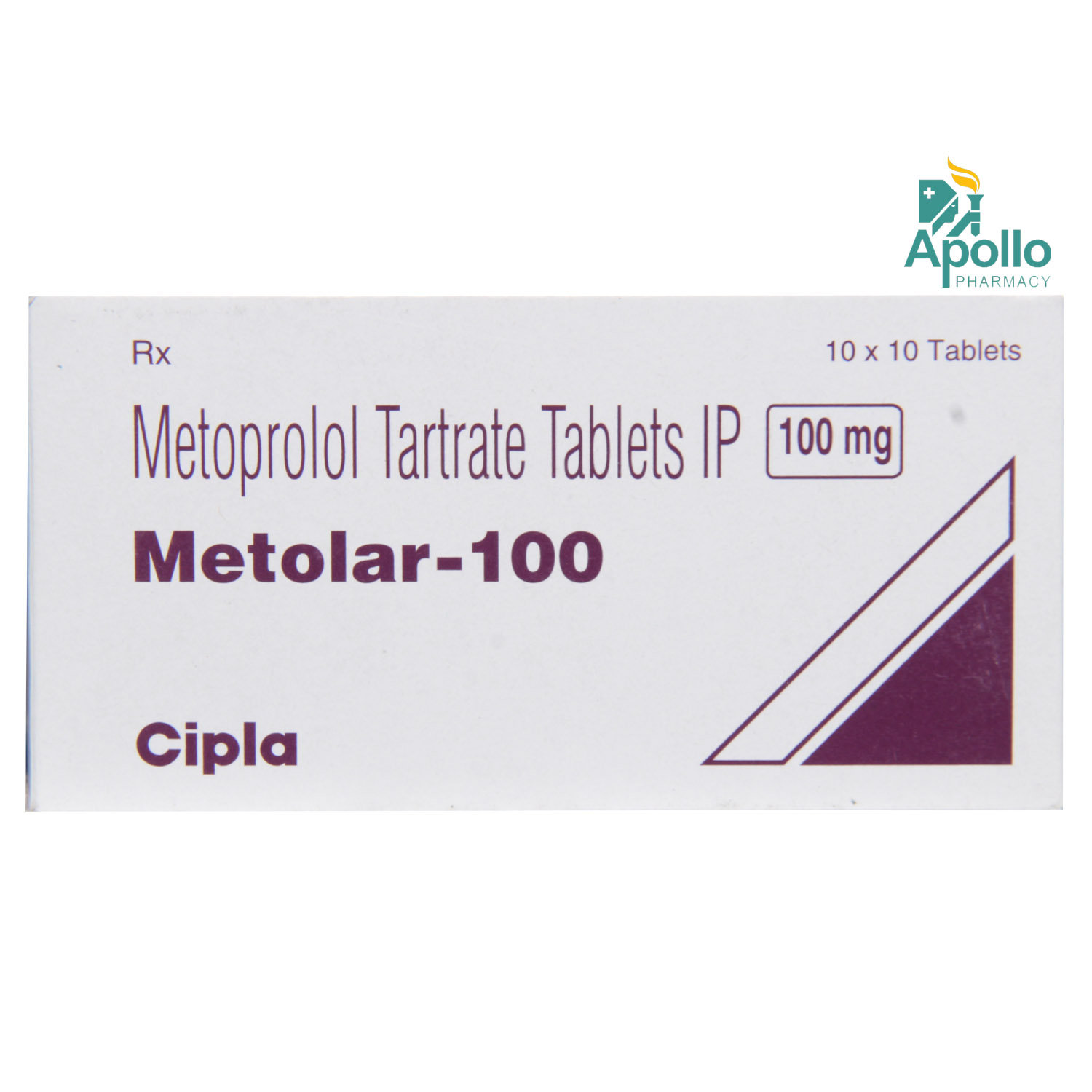
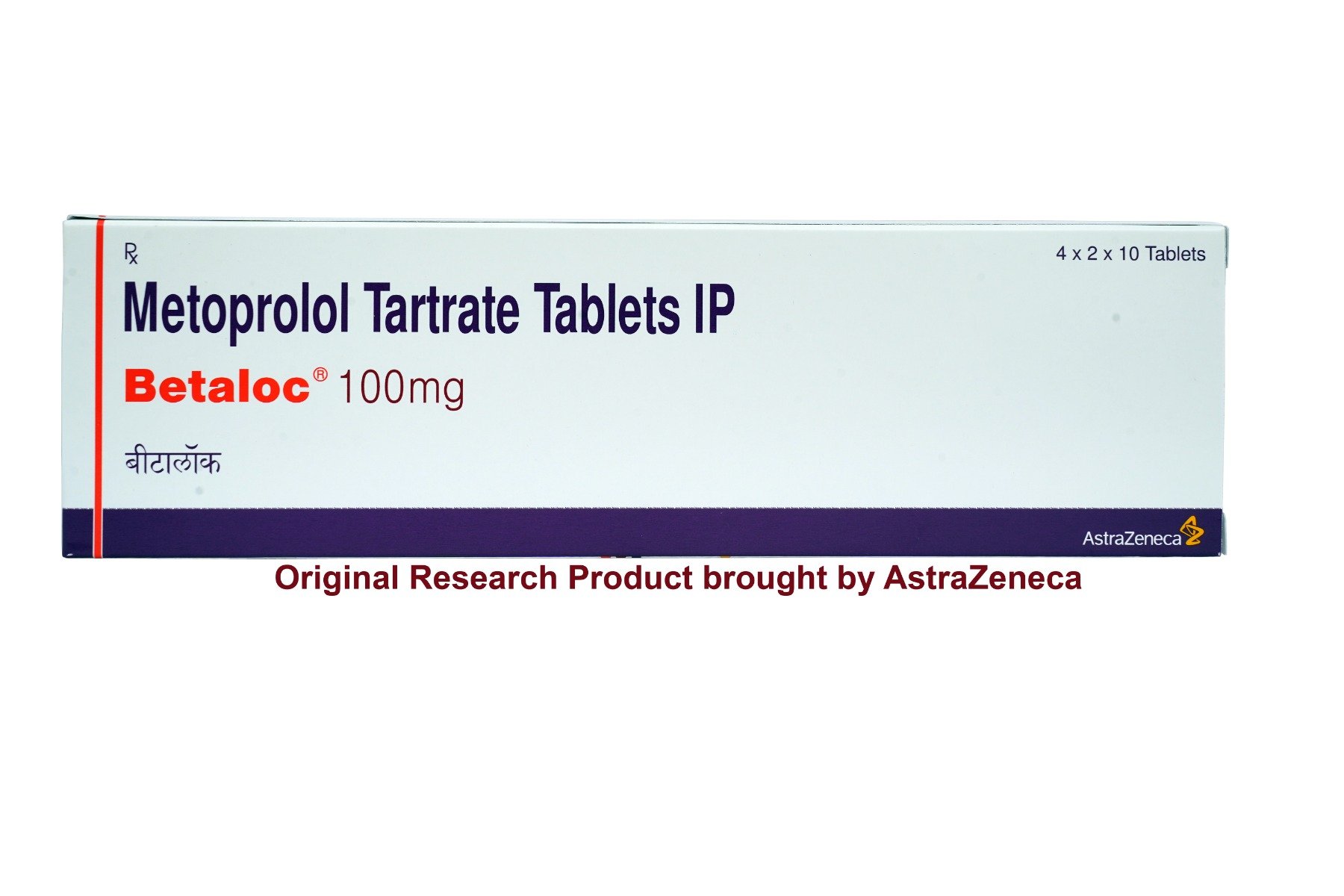
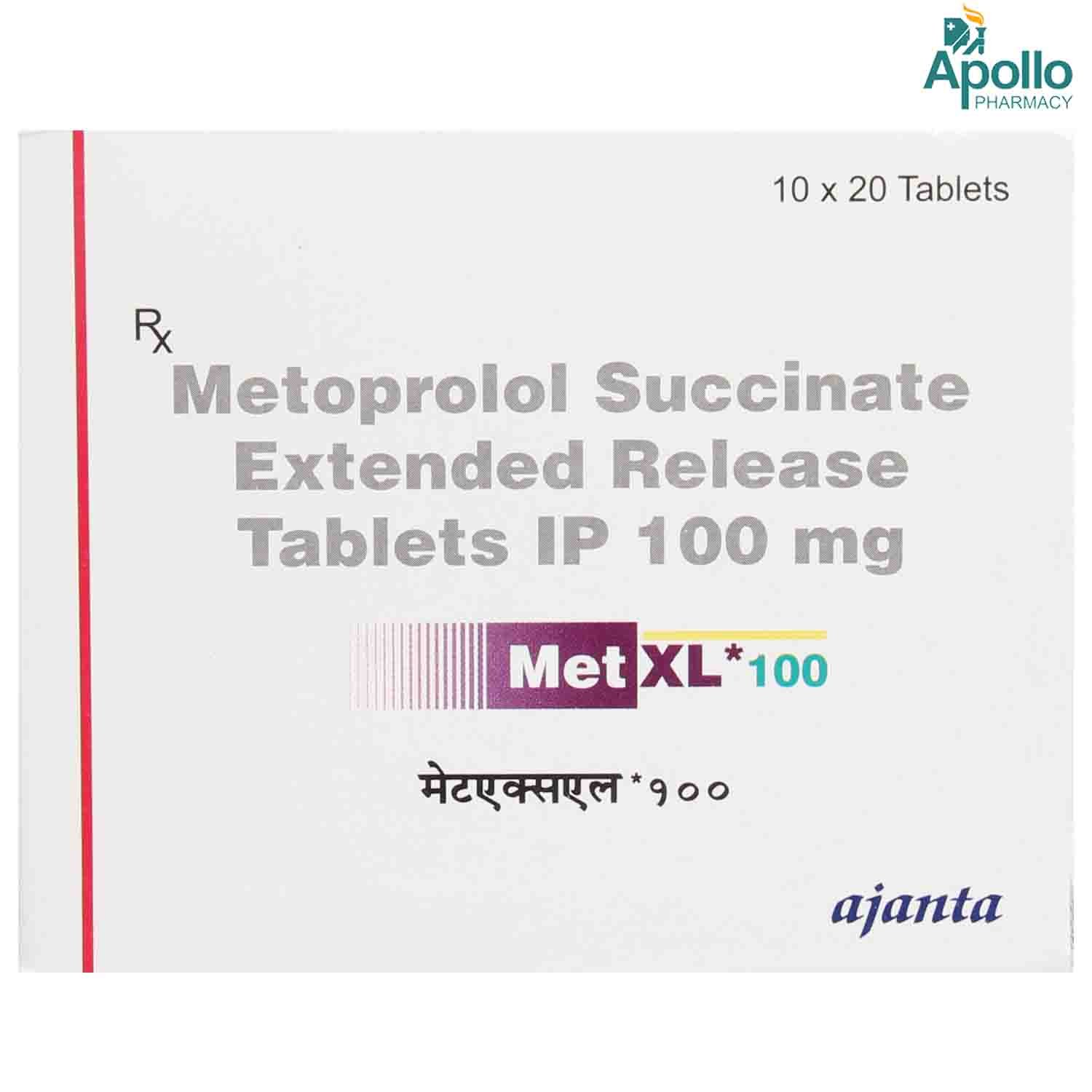

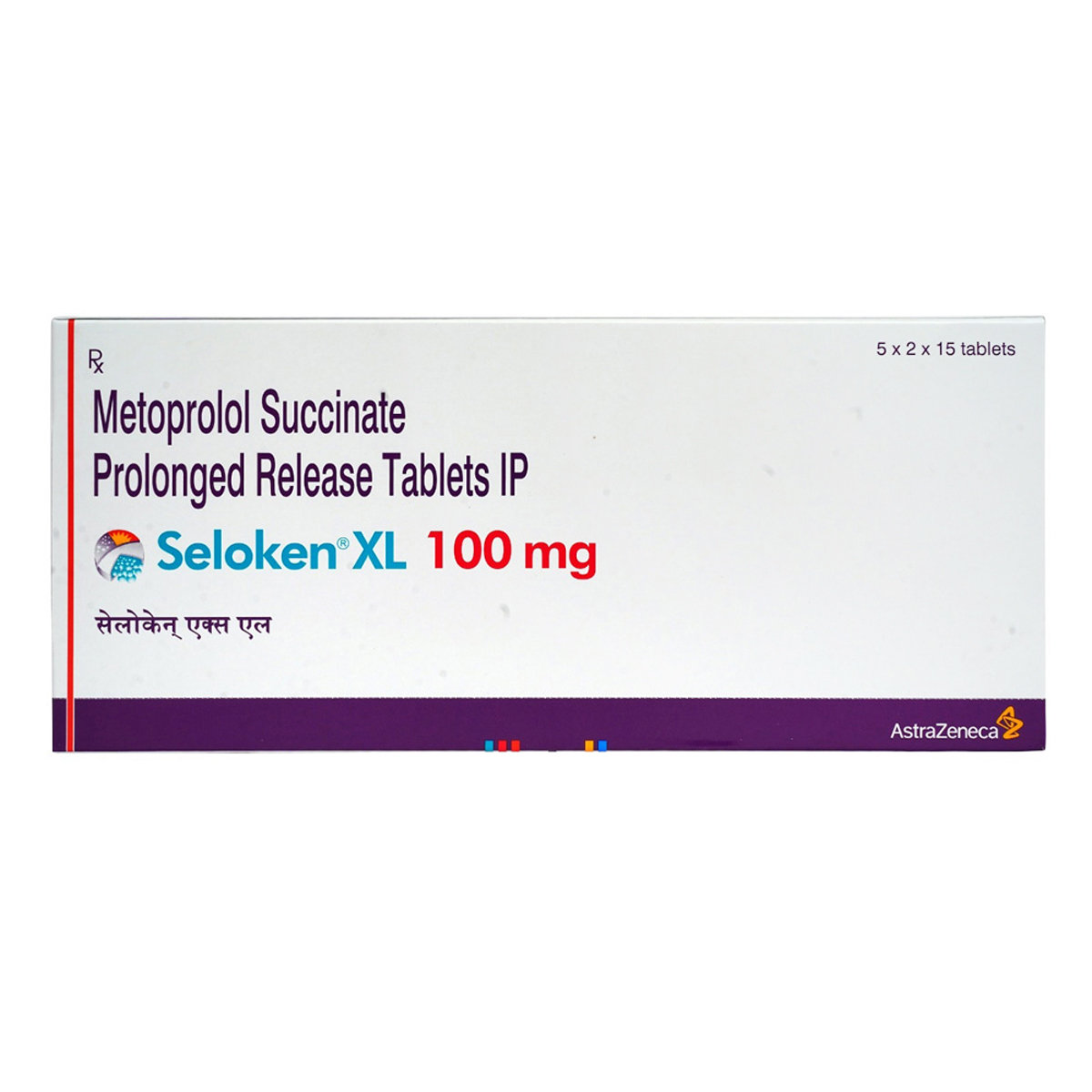
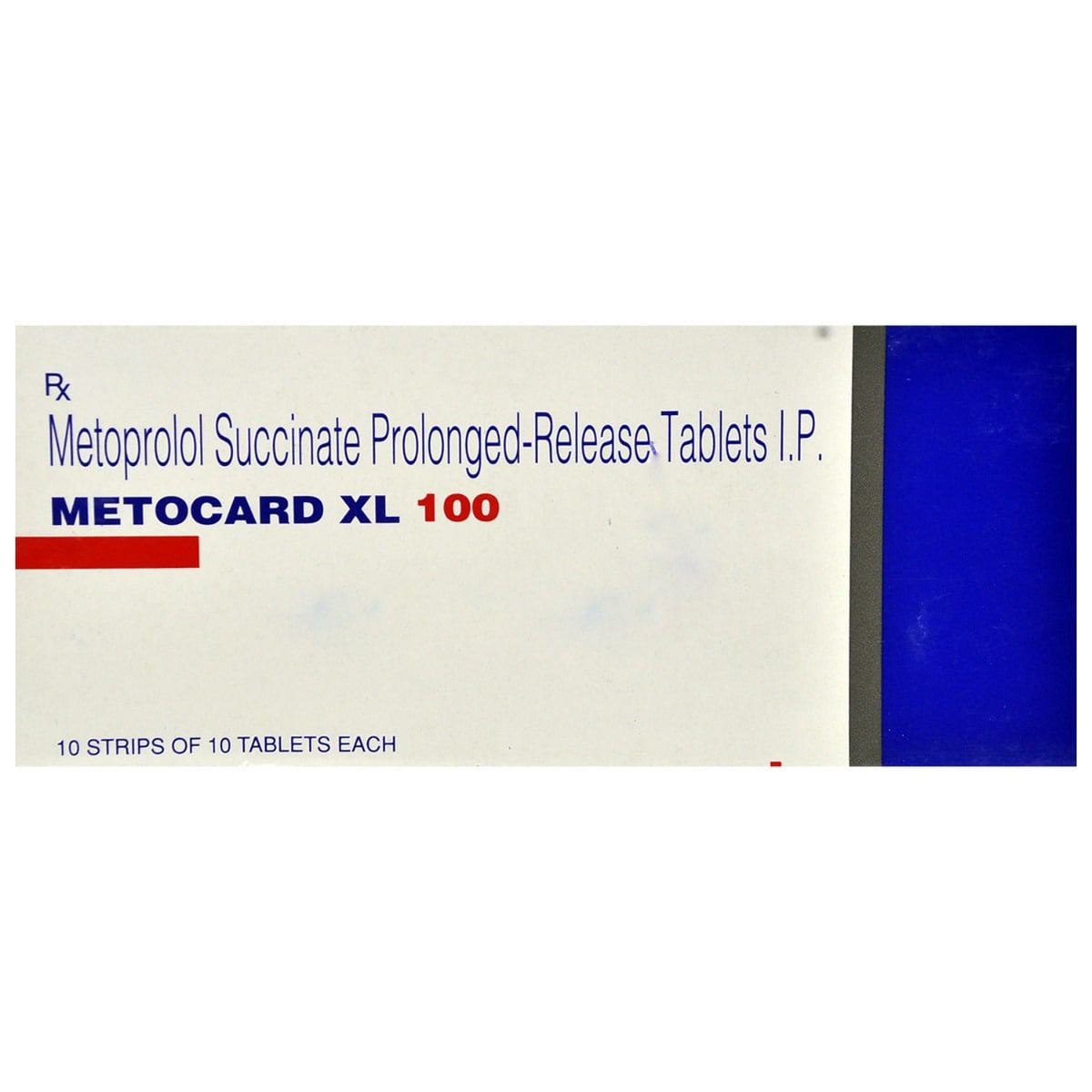
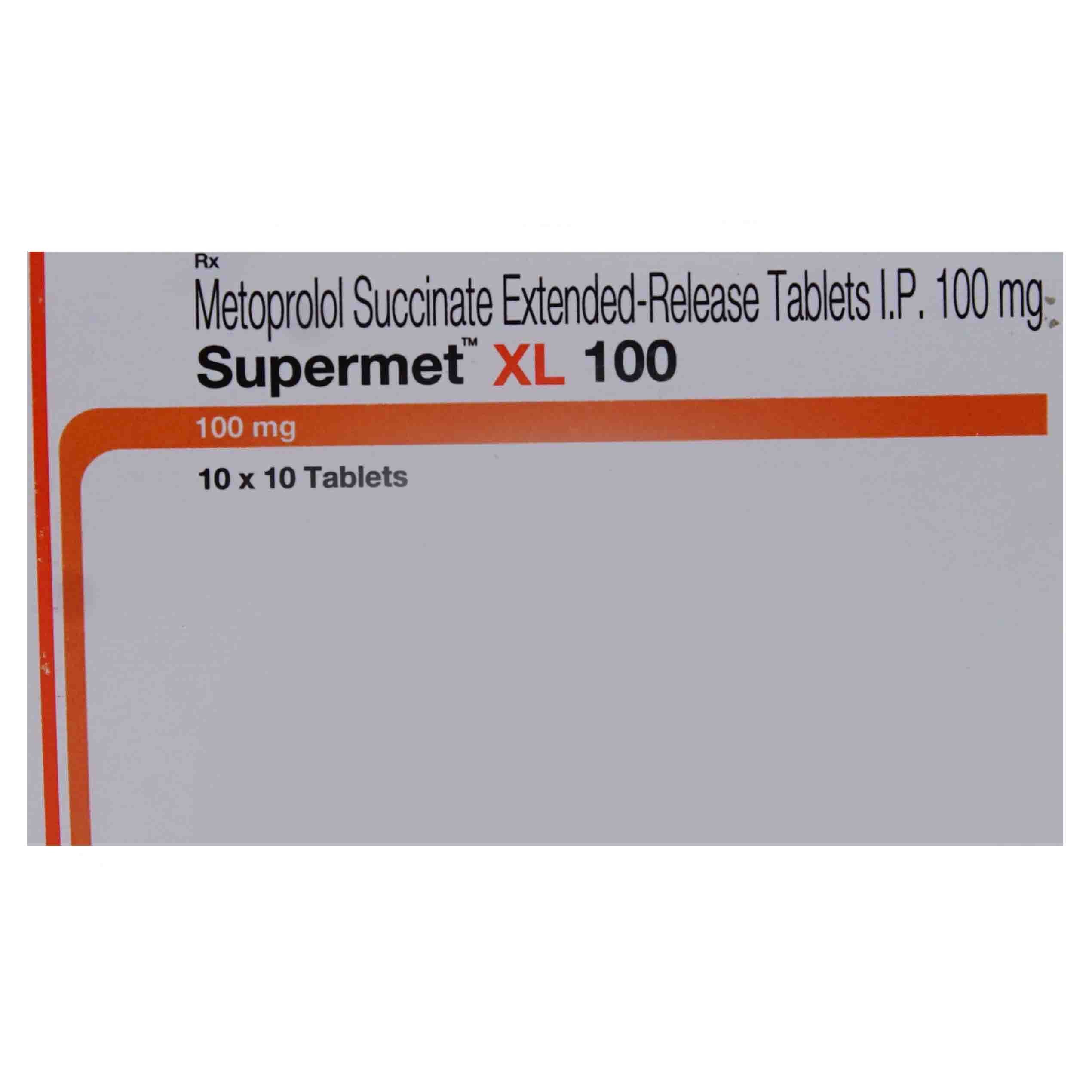
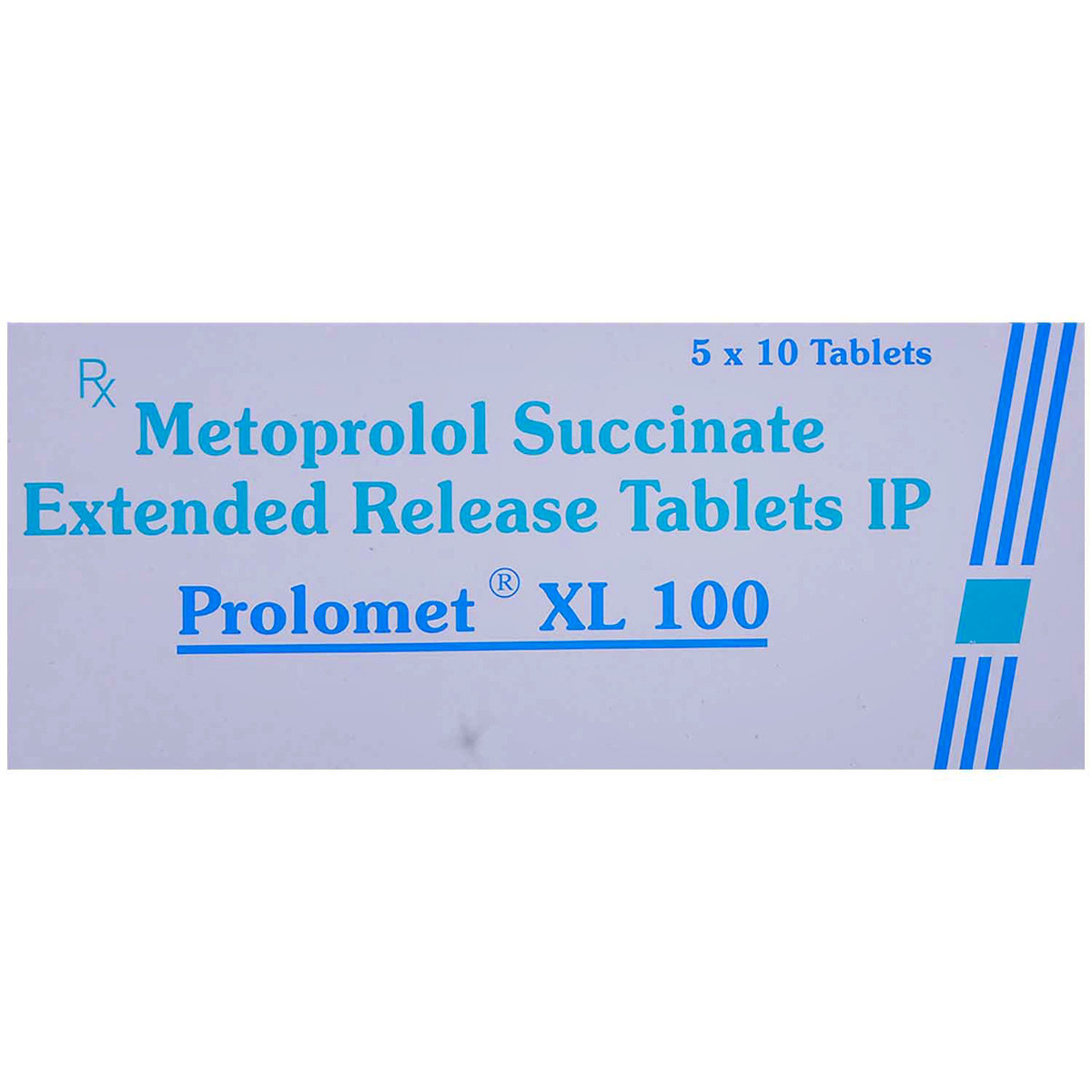

_0.jpg?tr=q-85)

